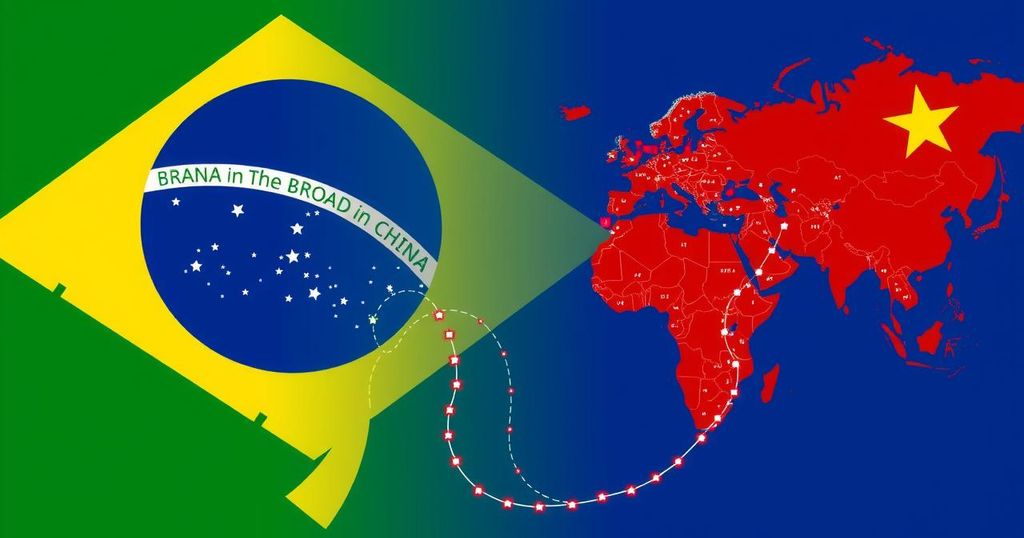Brazil has announced it will not formally join China’s Belt and Road Initiative (BRI), despite expressing interest in using elements of the initiative to enhance its own infrastructure projects. Special presidential adviser Celso Amorim indicated that internal divisions exist within the government regarding this decision, which ultimately seeks to maintain strong relations with China while prioritizing Brazil’s autonomy in infrastructure investment.
In a significant diplomatic move, Brazil has publicly declared that it will not formally join China’s Belt and Road Initiative (BRI), a vast infrastructure program launched by Beijing over a decade ago. Celso Amorim, the special presidential adviser for international affairs, conveyed this decision during a recent visit to Beijing, clarifying that while Brazil will refrain from becoming a formal participant in the initiative, it remains open to leveraging certain aspects of the BRI to enhance its domestic infrastructure projects. This nuanced position reflects ongoing internal debates within the Brazilian government regarding the BRI’s alignment with the nation’s strategic interests. Observers believe that Brazil’s cautious approach is designed to maintain robust relations with China, which stands as Brazil’s largest trading partner, while simultaneously safeguarding the country’s autonomy in selecting investment frameworks that are most beneficial for its own development. Brazilian officials had previously indicated that there was an expectation for the country to consider joining the BRI during President Xi Jinping’s upcoming visit to Brazil. However, this recent statement from Mr. Amorim suggests a preference for collaboration that does not compromise Brazil’s independence in managing its infrastructure agenda. The Brazilian administration’s focus appears to be on creating synergies with the funds and framework of the BRI without fully embracing what some see as a strategic commitment to Beijing’s expansive ambition.
The Belt and Road Initiative, initiated by China to enhance global trade and economic collaboration through infrastructure development in participating countries, has garnered mixed responses from different nations. Many countries have joined the initiative, driven by the potential influx of Chinese investments. However, Brazil’s decision to remain non-committal while seeking partnership opportunities reflects its careful consideration of the implications of China’s increasing global influence in its domestic policies and infrastructure development priorities. This stance illustrates Brazil’s desire to balance its economic interests with its diplomatic autonomy, especially as it continues to cultivate its largest trading relationship in China.
In summary, Brazil’s decision to refrain from formally joining the Belt and Road Initiative, while remaining open to utilizing certain elements of the framework, highlights a strategic approach that underscores its commitment to independence in foreign relations. This careful balancing act allows Brazil to seek potential benefits from cooperation with China, without being tied to the broader implications of the BRI, aiming instead to focus on its unique infrastructure needs and priorities.
Original Source: www.scmp.com






